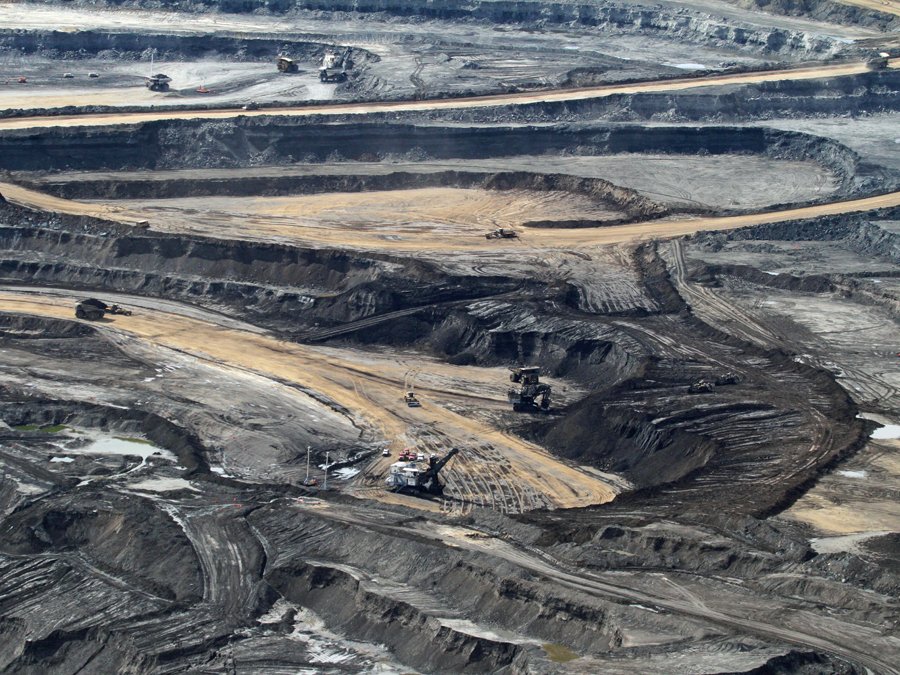COLUMN: Governments just giving up on life on earth?
The U.S. president may think global warming is a hoax perpetrated by China, but his administration has concluded Earth’s average temperature will rise 4 C over pre-industrial levels by 2100 if we fail to address the causes. Overwhelming scientific evidence concludes that such a rise would be catastrophic for humanity and many other animals and plants on this small blue planet.
The 500-page statement detailing this frightening scenario, prepared by the National Highway Traffic Safety Administration, wasn’t a warning, though. It was meant to justify the president’s decision to stall federal fuel efficiency standards for cars and light trucks. The statement’s authors claim global average temperature will rise in any case, so freezing fuel-efficiency standards won’t make enough of a difference to matter.
They write that avoiding such catastrophic warming “would require substantial increases in technology innovation and adoption compared to today’s levels and would require the economy and the vehicle fleet to move away from the use of fossil fuels, which is not currently technologically feasible or economically feasible.”
So, it’s not economically feasible to save humanity from the disastrous, incredibly costly impacts of global warming — Impacts confirmed in the recent IPCC report? And we’re to ignore the rapid technological advances in so many areas of society, throw up our hands and say it’s impossible to change? It’s an astounding conclusion, but not unusual. A common refrain from Canadians who reject the need to address climate change is that Canada’s contribution to overall global warming is so small that it makes no difference what we do, so we might as well go full speed ahead.
One has to wonder if this makes up some of the thinking behind the desire of Canada’s federal and some provincial governments to ramp up fossil fuel development with pipeline mega-projects, oilsands expansion, offshore drilling and massive liquefied natural gas developments, all while stating a commitment to addressing climate change.
Scientists offer detailed evidence that we must leave most fossil fuel reserves in the ground if we are to avoid the worst consequences of climate change, but our prime minister has stated, “No country would find 173 billion barrels of oil in the ground and just leave them there.”
As Canadian citizens are on the hook for the $4.5 billion our government paid to buy an old pipeline, along with billions more to expand it, the government is also considering a massive oilsands project that will ultimately drive up greenhouse gas emissions. According to The Narwhal, “The proposed mine would produce 260,000 barrels per day of bitumen at its peak, cover 24,000 thousand hectares and — during its 41-year lifespan — tap into reserves in the neighbourhood of 3.2 billion barrels.”
Although Teck, the company behind the project, touts its commitment to keeping emissions under control — claims supported by the Alberta and federal governments — it doesn’t account for the emissions from burning the extracted bitumen!
Meanwhile, the B.C. government has given the green light — along with at least $5.35 billion in subsidies — to a massive, emissions-intensive, $40 billion liquefied natural gas project in northern B.C. The joint venture between Royal Dutch Shell, Mitsubishi Corporation, Malaysian-owned Petronas, PetroChina and Korea Gas Corporation would include a 670-kilometre pipeline to carry mostly fracked gas from Dawson Creek to Kitimat, where it would be liquefied and exported in tankers.
Extensive research shows that industry and government have seriously underestimated emissions of the potent greenhouse gas methane (which is what natural gas is mostly composed of) and that fracking causes numerous environmental problems, from earthquakes to water contamination. Yet, the B.C. government is offering “the largest and most profitable multinationals in the world” carbon tax breaks, elimination of the LNG income tax and reduced electricity rates, The Narwhal reports.
It’s as if many people who are supposed to represent our interests either lack the imagination, foresight and long-term thinking needed to deal with a crisis as massive as human-caused climate disruption, or they’ve given up and decided short-term economic gain and positive election prospects are more important than ensuring that we and our children and grandchildren will have a viable future.
That’s unacceptable. It’s up to us to hold politicians and business leaders to account. It’s time our governments started representing the interests of citizens over the fossil fuel industry.
David Suzuki is a scientist, broadcaster, author and co-founder of the David Suzuki Foundation. Written with contributions from David Suzuki Foundation Senior Editor Ian Hanington.
Learn more at www.davidsuzuki.org.
Editor’s note: For those who wish to read more about some of the references in the article above, I’ve included the links below:
Global warming is a hoax:
https://www.cnn.com/2017/08/08/politics/trump-global-warming/index.html
500-page statement detailing this frightening scenario:
Confirmed in the recent IPCC report:
http://www.ipcc.ch/report/sr15/
We must leave most fossil fuel reserves in the ground:
Our prime minister has stated:
Speech transcript:
https://www.macleans.ca/politics/the-nafta-story-as-told-by-photos-of-trump-and-trudeau/
$4.5 billion our government has paid to buy an old pipeline:
According to The Narwhal:
https://thenarwhal.ca/latest-oilsands-mega-mine-proposal-a-reality-check-for-albertas-emissions-cap/
B.C. government has given the green light:
https://www.cbc.ca/news/canada/british-columbia/kitimat-lng-canada-1.4845831
Extensive research shows:
Largest and most profitable multinationals:
https://thenarwhal.ca/lng-canada-project-called-a-tax-giveaway-as-b-c-approves-massive-subsidies/
























